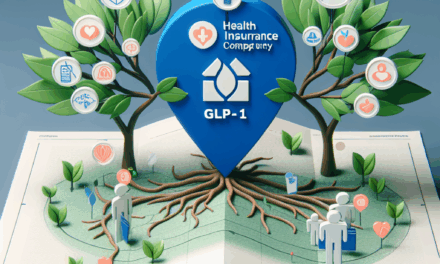UnitedHealth and Amedisys Strike New Agreement for Home Health and Hospice Sales Pending Merger Approval
The healthcare landscape is continuously evolving, with mergers and acquisitions playing a significant role in shaping the future of patient care. One of the most notable recent developments is the agreement between UnitedHealth Group, a leading healthcare company, and Amedisys, a prominent provider of home health and hospice services. This article delves into the implications of this agreement, the potential merger, and what it means for the future of home health and hospice care in the United States.
Understanding the Players: UnitedHealth Group and Amedisys
Before diving into the specifics of the agreement, it is essential to understand the two key players involved: UnitedHealth Group and Amedisys.
UnitedHealth Group: A Healthcare Giant
UnitedHealth Group is one of the largest healthcare companies in the world, providing a wide range of health insurance products and services. Founded in 1977, the company operates through two primary divisions: UnitedHealthcare, which offers health benefits, and Optum, which provides health services. With a market capitalization exceeding $500 billion, UnitedHealth has a significant influence on the healthcare industry.
- Market Reach: UnitedHealth serves over 70 million individuals across the United States and has a growing international presence.
- Diverse Offerings: The company provides a variety of services, including health insurance, pharmacy care, and data analytics.
- Focus on Innovation: UnitedHealth invests heavily in technology and innovation to improve patient care and reduce costs.
Amedisys: A Leader in Home Health and Hospice Care
Amedisys, founded in 1982, specializes in home health care and hospice services. The company operates more than 500 locations across the United States and serves over 100,000 patients annually. Amedisys is known for its patient-centered approach, focusing on delivering high-quality care in the comfort of patients’ homes.
- Home Health Services: Amedisys provides skilled nursing, physical therapy, and other rehabilitative services.
- Hospice Care: The company offers compassionate end-of-life care, emphasizing comfort and dignity for patients and their families.
- Quality Metrics: Amedisys consistently ranks high in patient satisfaction and quality of care metrics.
The Agreement: Key Details and Implications
The recent agreement between UnitedHealth and Amedisys marks a significant step in the evolution of home health and hospice care. This section explores the key details of the agreement and its implications for both companies and the healthcare industry as a whole.
Overview of the Agreement
The agreement between UnitedHealth and Amedisys is centered around the acquisition of Amedisys by UnitedHealth, pending regulatory approval. This strategic move aims to enhance UnitedHealth’s capabilities in the home health and hospice sectors, aligning with the growing trend of providing care in patients’ homes.
- Financial Terms: While specific financial details have not been disclosed, analysts speculate that the deal could be valued at several billion dollars.
- Regulatory Approval: The agreement is subject to approval from regulatory bodies, which will assess the potential impact on competition and patient care.
- Integration Plans: UnitedHealth has outlined plans to integrate Amedisys’ services into its existing healthcare offerings, enhancing care coordination.
Strategic Rationale Behind the Agreement
The strategic rationale for this agreement is multifaceted. As the healthcare industry shifts towards value-based care, the demand for home health and hospice services is on the rise. By acquiring Amedisys, UnitedHealth aims to strengthen its position in this growing market.
- Market Demand: The aging population and increasing prevalence of chronic diseases are driving demand for home health services.
- Cost Efficiency: Home health care is often more cost-effective than traditional hospital care, making it an attractive option for payers.
- Enhanced Care Coordination: Integrating Amedisys’ services allows UnitedHealth to provide more coordinated and comprehensive care for patients.
Impact on Patients and Caregivers
The agreement has significant implications for patients and caregivers. By combining resources and expertise, UnitedHealth and Amedisys can enhance the quality of care provided to patients in their homes.
- Improved Access to Care: Patients will have greater access to a range of services, including skilled nursing and therapy, without the need for hospital visits.
- Continuity of Care: The integration of services will facilitate better communication and coordination among healthcare providers, leading to improved patient outcomes.
- Support for Caregivers: Amedisys’ focus on caregiver support will be enhanced through UnitedHealth’s resources, providing additional training and resources for family members.
Challenges and Considerations
While the agreement presents numerous opportunities, it also poses challenges that both companies must navigate. Regulatory scrutiny, integration complexities, and market competition are all factors that could impact the success of the merger.
- Regulatory Hurdles: The merger will undergo rigorous scrutiny from regulatory bodies, which may delay or complicate the approval process.
- Integration Challenges: Merging two large organizations requires careful planning and execution to ensure a smooth transition.
- Market Competition: The home health and hospice market is competitive, and UnitedHealth will need to differentiate its offerings to succeed.
The Future of Home Health and Hospice Care
The agreement between UnitedHealth and Amedisys is poised to reshape the future of home health and hospice care. This section explores the broader implications of the merger for the industry and what it means for patients and providers alike.
Trends in Home Health Care
The home health care industry is experiencing significant growth, driven by several key trends. Understanding these trends is essential for grasping the potential impact of the UnitedHealth-Amedisys agreement.
- Aging Population: The U.S. Census Bureau projects that by 2030, all baby boomers will be older than 65, increasing the demand for home health services.
- Chronic Disease Management: As chronic diseases become more prevalent, home health care offers a viable solution for managing these conditions effectively.
- Technological Advancements: Innovations in telehealth and remote monitoring are making it easier for patients to receive care at home.
Value-Based Care and Its Impact
The shift towards value-based care is transforming the healthcare landscape. This model emphasizes quality over quantity, incentivizing providers to deliver better outcomes for patients. The UnitedHealth-Amedisys agreement aligns with this trend, as it aims to enhance care coordination and improve patient outcomes.
- Incentives for Quality Care: Providers are increasingly rewarded for delivering high-quality care, which aligns with Amedisys’ commitment to patient-centered services.
- Data-Driven Decision Making: UnitedHealth’s expertise in data analytics will enable more informed decision-making in home health care.
- Patient Engagement: Value-based care models encourage greater patient engagement, leading to better adherence to treatment plans.
Potential for Innovation
The merger presents an opportunity for innovation in home health and hospice care. By leveraging UnitedHealth’s resources and technology, Amedisys can enhance its service offerings and improve patient experiences.
- Telehealth Integration: The integration of telehealth services can expand access to care and improve patient monitoring.
- Data Analytics: Utilizing data analytics can help identify trends and improve care delivery.
- Personalized Care Plans: The merger can facilitate the development of personalized care plans tailored to individual patient needs.
Impact on Workforce and Employment
The merger will also have implications for the workforce in the home health and hospice sectors. As the industry evolves, the demand for skilled professionals will increase, necessitating a focus on workforce development.
- Training and Education: There will be a growing need for training programs to equip healthcare professionals with the skills needed for home health care.
- Job Creation: The expansion of services may lead to job creation in various roles, from nursing to administrative positions.
- Retention Strategies: Companies will need to implement retention strategies to keep skilled workers in the industry.
Regulatory Landscape and Compliance
The regulatory landscape for home health and hospice care is complex and constantly evolving. The merger will require both companies to navigate this landscape carefully to ensure compliance with federal and state regulations.
- Compliance Requirements: Both companies must adhere to strict compliance requirements related to patient care and billing practices.
- Quality Standards: Maintaining high-quality standards will be essential to meet regulatory expectations and ensure patient safety.
- Advocacy Efforts: Engaging in advocacy efforts to influence policy changes may be necessary to support the growth of home health care.
Conclusion: A New Era for Home Health and Hospice Care
The agreement between UnitedHealth and Amedisys represents a significant milestone in the evolution of home health and hospice care. As the healthcare landscape continues to shift towards value-based care and patient-centered services, this merger has the potential to enhance the quality of care provided to patients in their homes.
By combining resources, expertise, and innovative technologies, UnitedHealth and Amedisys can create a more integrated and efficient healthcare system. However, challenges remain, including regulatory scrutiny and market competition. As both companies navigate these challenges, the focus must remain on delivering high-quality care and improving patient outcomes.
In summary, the UnitedHealth-Amedisys agreement is not just a business transaction; it is a strategic move that could redefine the future of home health and hospice care in the United States. As the industry evolves, stakeholders must remain vigilant and adaptable to ensure that patients receive the best possible care in the comfort of their homes.





